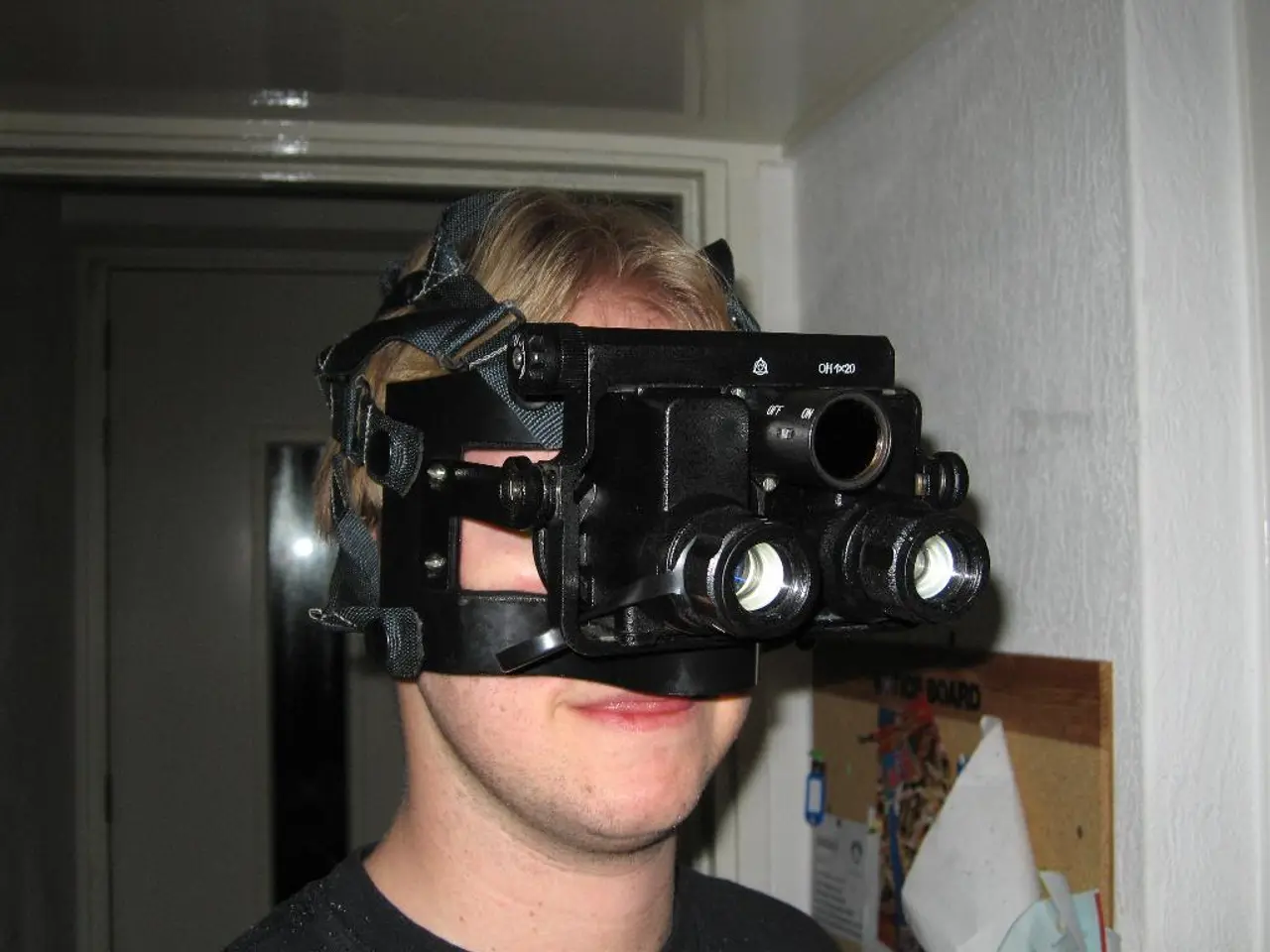Immersive Nursing Training in Worms: Equipping Nurses with Virtual Reality Goggles
Virtual Reality Transforms Nursing Education at Worms Clinic
Virtual reality (VR) technology is revolutionizing nursing education, providing immersive and realistic simulations that enhance student performance and preparedness for practical clinical situations. At Worms Clinic, nursing students are now utilizing VR glasses for their training, thanks to a digitalization initiative led by the ZAfP.
Luna Striegel, a nursing student at Worms Clinic, is among those benefitting from this innovative approach. She dons a pair of VR glasses and steps into a virtual patient room, where she can interact with a patient, monitors, and even a trash can next to the bed. The room's environment can vary, from different patients (adult or child), times of day or night, to complex emergency situations.
One such scenario involves Luna taking a blood pressure cuff and putting it on the virtual patient, as the monitor shows a low blood pressure reading and begins beeping. If something goes awry, trainees can always exit the simulation, and the incident is later discussed to improve response strategies. Luna interacts with objects in the virtual world using two hand controllers.
The VR glasses were primarily funded through the Digital Pact of the Land for schools, and Worms Clinic has initially purchased four sets, with three already in use. However, it's essential to note that these glasses do not replace hands-on nursing with real patients.
Knut Heinrichs, the principal of the ZAfP, believes that digitalization makes nursing training more attractive, while Johannes Alter, the training manager at the Central Training Center for Nursing Professions at Worms Clinic, can program a wide variety of training scenarios for trainees.
This VR-based training positively impacts nursing education by offering engaging, interactive, and repeatable experiences that replicate real-world environments. Studies show nursing students using VR score significantly higher on exams, with gains like 171 points in learner scores after VR exposure [1][4].
Immersive VR simulations help nursing students develop clinical judgment, empathy, teamwork, and communication skills essential for effective patient care [2][3]. They also reduce simulation anxiety and prepare students for interprofessional collaborative placements, contributing to smoother transitions into real clinical environments [3].
In addition, VR can significantly lower educational costs and reduce dependence on limited clinical placements, making high-quality simulation training more widely accessible [1][4]. Despite some challenges, such as technical usability issues and variability in perceived usefulness depending on student attitudes towards technology [2], VR is increasingly viewed as an effective complement to traditional nursing education.
Sources:
[1] Nightingale College. (2021). Virtual Reality in Nursing Education: A Systematic Review. Retrieved from https://www.sciencedirect.com/science/article/abs/pii/S235271102100063X
[2] Schneider, M., & Baur, R. (2019). Virtual Reality Training in Nursing Education: A Systematic Review. Retrieved from https://www.ncbi.nlm.nih.gov/pmc/articles/PMC6834881/
[3] Saha, S., & Jana, S. (2020). Virtual Reality in Nursing Education: A Review. Retrieved from https://www.ncbi.nlm.nih.gov/pmc/articles/PMC7428981/
[4] Nightingale College. (2021). Virtual Reality Training Improves Nursing Student Performance and Reduces Training Costs. Retrieved from https://www.sciencedaily.com/releases/2021/03/210316160804.htm
Luna Striegel, a nursing student at Worms Clinic, utilizes gadgets known as VR glasses for her training, which are powered by technology and provide immersive simulations for her practical clinical situations. These gadgets, funded through the Digital Pact of the Land for schools, are becoming an important part of nursing education at Worms Clinic, improving student performance and preparedness for real-world patient care.




